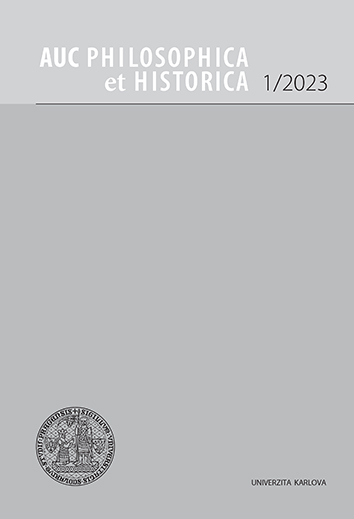AUC Philosophica et Historica je víceoborový akademický časopis zaměřený na humanitní a společenskovědné obory (filozofie, psychologie, pedagogika, sociologie, obecné, české a hospodářské dějiny, pomocné vědy historické a archivnictví, etnologie).
Časopis je indexován v databázích CEEOL, DOAJ a EBSCO.
AUC PHILOSOPHICA ET HISTORICA, Vol 2009 No 1 (2009), 69–86
Estetika a ochrana přírody
Karel Stibral
DOI: https://doi.org/10.14712/24647055.2018.13
zveřejněno: 12. 01. 2018
Abstract
This paper deals with the connections between the aesthetic value of nature, and landscape and ecosystem characteristics currently determined by the natural sciences to be important for nature conservation (biodiversity, complexity and stability). The paper shows the historical roots of nature conservation in Romantic reactions to nature, which were strongly related to aesthetic values. It also points out contemporary tendencies to protect aesthetically valuable natural areas (see for example British Areas of Outstanding Natural Beauty and National Scenic Areas). It points out the current dilemma about nature conservation for the sake of aesthetic landscape values and current attempts to transfer aesthetic values to values ascertainable using the natural sciences. The essay presents several traditional attempts (Leopold, Lorenz) at connecting the beauty of nature with characteristics ascertained using the methods of natural science, yet it also discusses current biological knowledge. The discussion about the approach of natural sciences is led primarily from the perspective of aesthetics as a discipline. However, it also takes into account the incongruity of specific examples used in the arguments of natural scientists, as well as their inability to predict what type of landscapes will appeal to people. In the conclusion the idea that there is a definitive connection between the aesthetic value of nature and landscape and the biodiversity, stability and complexity therein is brought into question. At the same time though the paper admits that biological theories and approaches have a certain validity that is, however, so general (in that they include such a broad field of phenomena), that they do not allow for decision making in specific cases dealing with nature conservation.
